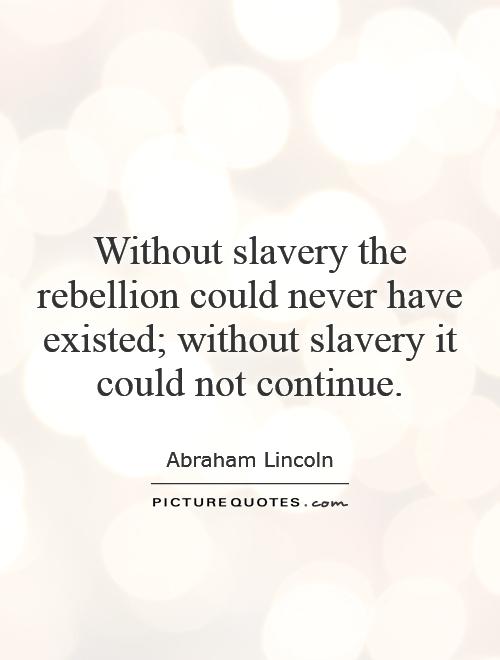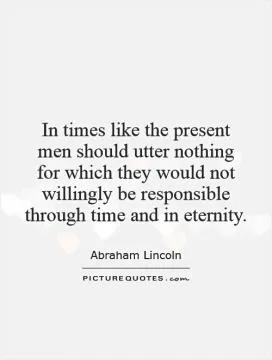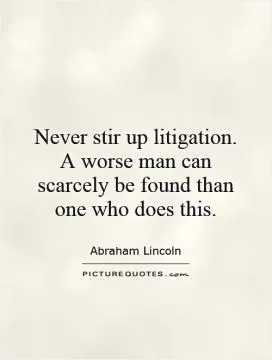Without slavery the rebellion could never have existed; without slavery it could not continue

Without slavery the rebellion could never have existed; without slavery it could not continue
Abraham Lincoln, the 16th President of the United States, is often remembered for his role in abolishing slavery through the Emancipation Proclamation and the Thirteenth Amendment. However, it is important to recognize that Lincoln's views on slavery evolved over time and were shaped by the events of the Civil War.The quote "Without slavery the rebellion could never have existed; without slavery it could not continue" highlights the central role that slavery played in the lead up to and during the Civil War. The Southern states seceded from the Union primarily because of their desire to protect the institution of slavery. The economic and social structure of the South was built on the backs of enslaved African Americans, and the Southern states were willing to fight to preserve this way of life.
Lincoln understood that slavery was at the root of the rebellion and that it would be impossible to reunite the country without addressing this fundamental issue. While Lincoln initially focused on preserving the Union, he came to see the abolition of slavery as a necessary step towards achieving that goal. As the war progressed, Lincoln recognized that the institution of slavery was not only morally wrong, but also a hindrance to the unity and progress of the nation.
The Emancipation Proclamation, issued by Lincoln in 1863, declared that all enslaved people in Confederate-held territory were to be set free. This was a bold move that not only struck a blow against the Confederacy, but also signaled a shift in Lincoln's thinking about the role of slavery in the war. The Thirteenth Amendment, passed by Congress in 1865 and ratified later that year, officially abolished slavery in the United States.












 Friendship Quotes
Friendship Quotes Love Quotes
Love Quotes Life Quotes
Life Quotes Funny Quotes
Funny Quotes Motivational Quotes
Motivational Quotes Inspirational Quotes
Inspirational Quotes